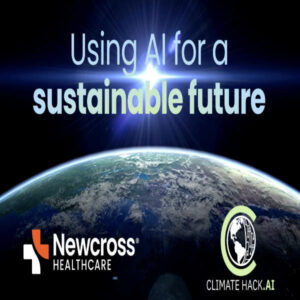Safeguarding, and the vulnerability of individuals, is something that everyone should be aware of. It is the act of protecting the health, wellbeing, and human rights of children, young people, and adults that may be at risk. By carefully implementing safeguarding and support measures, harm, abuse, and neglect can be identified and managed as well as, ultimately, prevented.
Why does Newcross Healthcare have a duty of care in safeguarding? Duty of care means to safeguard from harm and promote the wellbeing of those in your responsibility. There are specific obligations and legal requirements that organisations should follow to protect adults and children from harm in different settings.
Safeguarding adults
There are a number of factors involved in safeguarding adults. Firstly, their right to live free from abuse and neglect should be protected. Secondly, individuals and organisations must work together to achieve this. Finally, the adult’s views, beliefs, wishes, and feelings should be taken into account to support their wellbeing.
Safeguarding applies to all adults, but those who have care and support needs e.g. dementia or a learning disability, or are unable to protect themselves against abuse and neglect due to their specific needs, are statistically more likely to experience abuse or neglect.
Adults and children with communication difficulties can also be at risk as they may be unable to let people know what is happening to them. This is also true for adults with cognitive impairments who may not realise that they’re being abused or neglected.
Safeguarding children
All children have an equal right to protection from adults or other children that could pose a risk. This is why safeguarding children is vital for any organisation working with them. This is regardless of a child’s age, disability, gender reassignment, race, religion or belief, sex, or sexual orientation.
Safeguarding children means protecting them from abuse and mistreatment, preventing harm to their health or development, and providing them with safe, effective care as they grow up. This will, in turn, help to ensure that children have the best possible outcomes.
For more information, take a look at the Government’s statutory guidance on working together to safeguard children. The NSPCC also have lots of useful resources and articles on their website.
For more helpful adult and Children Safeguarding Partnership information, check your local authority website.
Types of abuse
When speaking about abuse, there are many different forms that this comes in. These include, but are not limited to:
Physical abuse e.g. hitting, slapping, and pushing
- Social abuse e.g. bullying, cyberbullying, and harassment
- Social isolation
- Psychological or emotional abuse
- Sexual abuse
- Neglect
- Domestic abuse
- Inappropriate or excessive restraint and restrictions on movement and activities
Other important safeguarding issues that are being tackled are:
- Female Genital Mutation (FGM)
- Adult and child exploitation
- Children and young people in Northern Ireland facing additional vulnerabilities living in a post-conflict society, which is still experiencing legacy issues associated with paramilitarism
- Safeguarding individuals who are vulnerable to radicalisation by stopping them being drawn into terrorism or extremism
Newcross Healthcare’s safeguarding process
As a health and social care organisation, we recognise that children, young people, and adults at risk must be safeguarded from all forms of abuse, wherever and however it might occur. Safeguarding risks may be posed by various parties, including staff and visitors in hospitals and registered care, home settings, educational establishments, family, friends, and care staff in the individual’s own home.
We take every possible action to identify risks and prevent abuse. Any safeguarding issue that occurs, or is reported, is dealt with promptly and effectively by our robust process
We’re committed to ensuring that all colleagues coming into contact with individuals at risk have undergone appropriate Enhanced Disclosure and Barring Checks (DBS) as well as any regulatory bodies checks before commencing work. All healthcare workers are recruited in line with safe and rigorous employment checks. Our pre-employment process also ensures checks are carried out on work history, current and recent employment references, and stringent identity checks.
Safeguarding training is delivered to all new recruits during their induction before they start work. This training includes outlining their safeguarding responsibilities, how to recognise different types of abuse, and how to report it. A safeguarding training refresher is repeated on an annual basis.
All healthcare colleagues are given guidance on how to deal with and report any other relevant allegations or concerns where a person with care and support needs may be placed at risk of harm. They also have access to our safeguarding policies which include procedural guidance.
If you’re a concerned healthcare worker, or suspect that an act of abuse is being carried out, always discuss with your line manager. If you feel that there maybe imminent threat to life, then always call 999.











